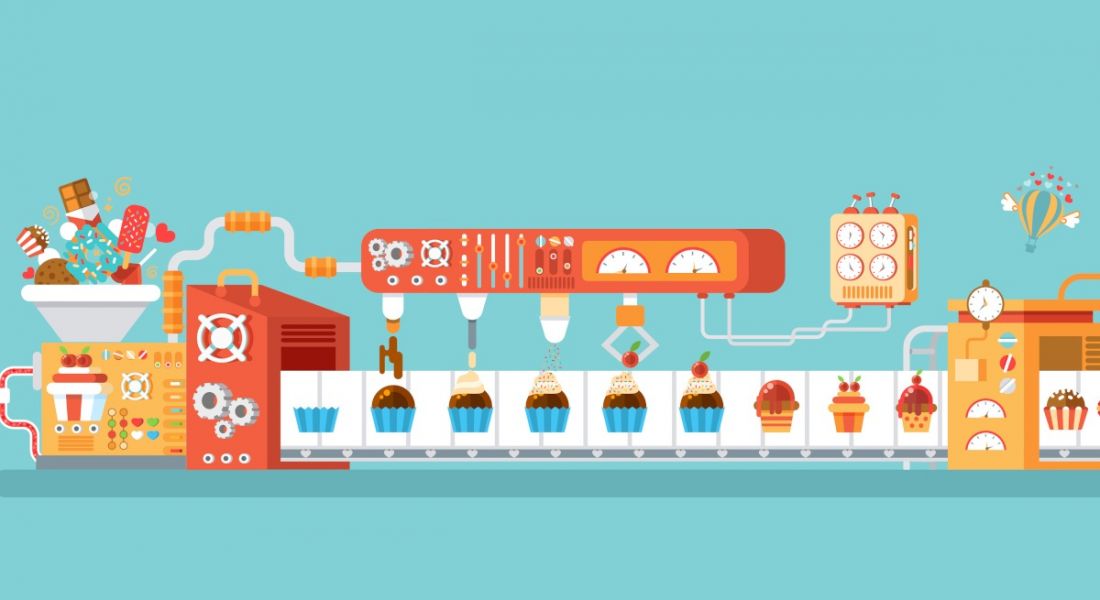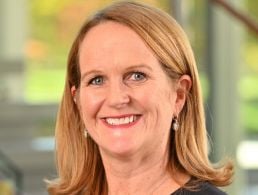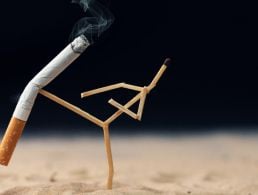EIT Manufacturing CEO Caroline Viarouge on how she found her purpose, her Irish links and why she thinks AI will make workers’ lives more meaningful.
By her own admission, it took Caroline Viarouge a little while to find her niche. She has had roles in marketing, operations and consultancy and worked in the UK for a while. She did a stint in Ireland, beginning her career by studying international business at University College Dublin (UCD).
“Then, when I started to look for a job I wasn’t sure exactly where I would go,” she says. However, she knew from a young age that her heart belonged to one industry: manufacturing.
The making of a manufacturer
A rather charming personal anecdote on her LinkedIn profile tells of her childhood fascination with the manufacturing process when aged 10, she visited a mineral water bottling factory. “I found it fascinating in many ways; the people, the machineries and the production flow were truly impressive.”
The experience stayed with her, and these days she describes the industry as her playground. Viarouge became the CEO of the European Institute of Innovation and Technology (EIT) Manufacturing hub in May 2023.
She oversees multiple projects as part of her duties, from industry and academic partnerships to wider EIT initiatives such as encouraging more women into tech.
“In EIT Manufacturing, we improve people’s lives through sustainable innovation. This purpose is very close to my heart as I believe in people-centric innovation, green technologies that serve the needs of humans and our communities, and the importance of empowering diversity and elevating the role of women in the manufacturing industry,” Viarouge says.
Caroline Viarouge. Image: EIT
But it took her a while to find where she could put her business acumen to good use in the manufacturing sector. Her quest to find a role that suited her took her to employers and educators all over Europe.
Following her graduation from UCD, she got her first job at Nissan, working in sales, operations and marketing for several years before moving on to BearingPoint as a tech and business consultant. That role was based in the UK. Although she enjoyed consultancy and moved through the ranks quickly, she found she was missing the nuts and bolts – or, as she puts it, “I was missing the metal.”
‘I was missing the metal’
To satisfy her appetite for the production flow she found so enthralling as a child, she went to Swedish HVAC company Munters, first working in the UK before returning to her native France. Her last role before she joined EIT Manufacturing was VP of strategy and transformation at Munters.
These days, her time is mostly taken up by the demands of running one of nine EIT innovation clusters. As well as manufacturing, the body has clusters focused on climate, culture and creativity, food, digital, health, engineering, mobility and materials.
One of Viarouge’s main professional goals is helping others discover their niche within manufacturing – she is especially passionate about supporting women. In a freelance capacity, she is part of a business angel network called Capitole Angels which focuses on the Occitania region of France where she is from. She also coaches at HEC Paris, where she did an executive MBA a few years ago.
The work is about supporting budding businesspeople with good ideas. As Viarouge says, “The ones that will be the Europe of tomorrow.”
It ties in nicely with the EIT’s mission to encourage new talent. “For us, on the manufacturing topic, it’s extremely important to think of people-centricity – building innovation, keeping the people at the centre of reflection, to upskill people across Europe to be able to address and work with new technology,” says Viarouge.
What are these new technologies she speaks of? Well, deep tech, robotics, green manufacturing and leveraging AI and data to be more efficient. She believes the latter can be particularly effective when it comes to helping manufacturing businesses scale up.
AI as enabler
“We work with AI and data to use it as an enabler to be more efficient and also bring more investment into start-ups and scale-ups,” she explains. AI, in particular, will change the way businesses produce, sequence and operate; Viarouge hails it as “a game-changer” for manufacturing. She is adamant it won’t lead to job losses, but will instead lead to more appetite for upskilling as people will need to become adept at handling the robots that production lines use to automate some of the more menial tasks.
“Something we need to realise is that today we have a lot of viscosity of talent. Everything repetitive, say, on the production line – ie the jobs we are struggling to recruit for – we will replace with a robot and at the same time, people in the production line will have much more meaningful and impactful roles.”
Ireland’s ‘dynamic’ manufacturing sector
Given she spent some time in Ireland – albeit more than a decade ago – what does she think of our manufacturing scene? “Ireland is very dynamic in the manufacturing space. When we talk with the partners there, and we see the projects and discussion, I think that the manufacturing is there and at the same time you also have the topic around innovation. We work closely with UCD which is a core partner in manufacturing and we have some projects with them.”
One of those projects is Strada, a programme that targets women postgraduate students in engineering, as well as women working in manufacturing. Participants receive training, mentorship and networking opportunities with the EIT’s ecosystem of research institutions and employers.
Bringing more women into manufacturing is something Viarouge is keen to do. She points out that the sector has one of the lowest representations of women, so programmes like Strada are badly needed.
“We try to really empower these women,” she says. What advice would she give them, or indeed her younger self touring the bottle factory all those years ago? She considers the question for a couple of seconds: “Personally, the advice I would give is we can do it. I think the day I started to take more managerial and leadership roles was the day I realised that I can do it and maybe more.”
Find out how emerging tech trends are transforming tomorrow with our new podcast, Future Human: The Series. Listen now on Spotify, on Apple or wherever you get your podcasts.




